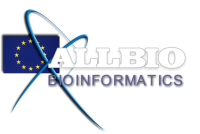
If you are interested in participating this Coordination Action please contact us!
Modern life sciences are facing a rapidly increasing amount of data produced worldwide. The diversity and heterogeneity of the data calls for standardized formats for the data itself, its description and its context (the metadata), as well as for the processes during generation and processing of the data, the Standard Operating Procedures (SOPs). Standardization is important to enable researchers to exchange and integrate the data and resulting models and to relate corresponding data to each other. The rapid development of modern technologies, especially the Next Generation Sequencing (NGS) technologies, allows the generation of biological data with increasing speed and precision. Standards and SOPs, therefore, become an increasingly critical issue specifically in large scale, distributed or applied approaches assuring that data can be accessed, integrated, shared, and compared. The development of quality control and standards are key drivers for efficient and successful large-scale research pipelines in the life sciences. The workshop will bring together experimentalists and modellers, as well as representatives from national and international standardization bodies and data management experts. It will include discussions of the current state of standardization in the different fields of the life sciences. The aim is to identify overlaps, possible interoperability and interfacing options between the corresponding standards.
The organising team:
Program
Wednesday, July 9, 2014
Hands-on training in new computational methods in next generation sequencing and genome annotation
Friday, July 11, 2014
*please bring your own laptop with you